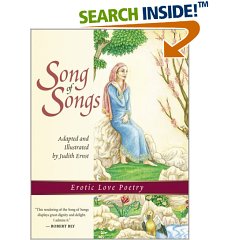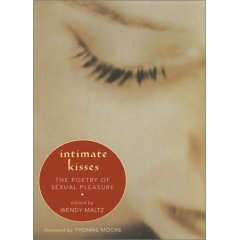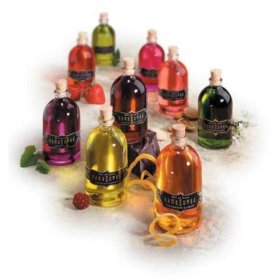 A Sophisticated Study of Desire, July 26, 2006
A Sophisticated Study of Desire, July 26, 2006
Carey Ellen Walsh's philosophical discussion of desire is a
stimulating intellectual exploration of what fuels our lives.
Desire, often banned to some corner of our existence, if often
unspoken and controlled by social norms. In the Song of Songs,
desire reigns in all its beauty and captivating spirituality,
leaving us wondering why we didn't recognize the importance of
this book before.
"We are confessing our vulnerability to desire, admitting
that it threatens our very selfhood. The paradox of human sexual
desire is that we simultaneously want to be undone by love and
fear it." ~ pg. 71
You may even start to find it humorous that for years people may
be carrying a Bible around not knowing that within the pages a
book of erotica (desire with emotion not only description of
action) has been preserved through the ages. While many believe
the poetry is also representative of our longing for a union
with the divine, the metaphors indicate a very earthly and
erotic masterpiece. The sensually charged language, once
explained fully, takes our understanding of love much further
than a general understanding of yearning and infatuation. After
studying the poetry, the desire seems representative of a much
deeper need, a bonding of soul mates.
"The woman's life force is marked through and through by
her love for this man. In her case, it is not simply her
romantic interest alongside other life interests. Instead, it
characterizes the whole of her existence." ~ pg. 78
What many books don't indicate is that this is a book written by
King Solomon who was wooing a shepherdess. The author does
mention this briefly in "Woman's voice in the Canon."
Could this Shulamite virgin have been his soul mate? The poetry
makes more sense within the context of a couple meeting,
marrying and then making a life together. The word "my
spouse" is used in the KJV. Whether you decide this was
written by a man or a woman, this ancient love poetry is still
fascinating to study. A door is no longer a door, water takes on
multiple meanings and nature is used as powerful symbols of the
lover's desires.
This book gave me completely new insights into how and why we
write poetry. This book takes forever to read because it is an
intricate study, but if you enjoy poetry it may open up new
worlds. Carey Ellen Walsh also discusses desire throughout
history, briefly mentions Romeo and Juliet and delves into
examples from the Odyssey. She does seem to have her own agenda
throughout, but you can take what you need and take some of her
ideas and think about them from her perspective.
A beautiful compliment to this book is the Song of Songs adapted
and illustrated by Judith Ernst.
~The Rebecca Review

Song of Songs Love Poetry
 Spiritual and Sensual Love, July 25, 2006
Spiritual and Sensual Love, July 25, 2006
"In the imagery of the verses, God's art, the divine art,
is the creation, and the essence of that art is the body of the
beloved."
Reading the Song of Songs at a much younger age, I failed to
grasp the beauty of metaphors and Judith Ernst's insightful
exploration of this mysterious book finally unveiled the
mystical and sensual awakening of a woman in love. Not only has
the text been updated for the modern reader, the beauty of the
King James Version has been preserved.
The Song of Songs is written from many perspectives and has many
voice, but the predominant theme is that of feminine desire. The
depth of longing is magnified by action and as human passion
overwhelms the subject, she goes looking for her lover.
"...for love is strong as death, jealousy is cruel as the
grave. Its darts are darts of fire, a flame forever blazing.
Many seas cannot quench love..."
Most of the pictures in the book show a woman waiting for her
lover in a variety of locations. She is found in beautiful
gardens, vineyards and by a palm tree. The images in the text
are brought to life vividly, but only with the woman as the
subject. Instead of focusing on what a man would find to be
sensual and sexy, the woman is portrayed filled with longing and
emotion, which makes her much more spiritually appealing.
After each passage is presented, Judith Ernst explores the
possible meanings and unveils the intricacies in the
translation. While the message in the words seems to indicate
purely human passion, scholars would lead us to believe this is
a representation of our longing for a connection for the divine.
After reading this book, you may feel that the desire for
another could be very related to a desire to worship the divine.
Reading this book gave me new perspectives and much to consider
about the permanence of desire since ancient times and how it
reveals itself in stories of love and fuels our love for life.
~The Rebecca Review
Poetry for Reading Pleasure

Intimate Kisses
 Words
Dipped in Pleasure, June 7, 2005 Words
Dipped in Pleasure, June 7, 2005
"Sex within a context of real love, commitment, and safety
is expansive and deeply pleasurable." ~Wendy Maltz
Until I started writing my own poetry; there was no way to
realize the depth of emotion present in intimate poems. How do
you even remember everything that happens when almost unaware of
time itself and captured in a mystery or moment of breathless
wonder?
Do poets hover above themselves in some dreamlike state
observing this ecstatic union awaiting its birth in words? Does
the soul watch the body's pleasure, silently? It seems it does
because when poems arrive often they spill out onto the page in
line after line of meaningful remembrance without much effort or
thought. These types of poems seem born of longing, fantasy,
dreams and the ancient desires all humans share. There is also
humor in some of the rhymes or a casual elegance.
Nikki Giovanni brings an amusing style to her poetry in
"That Day." The poem dances with the pleasure of the
rhyme.
if you've got the key
then i've got the door
let's do what we did
when we did it before
Peeling an Orange by Virginia Hamilton Adair also shows the
playfulness of love as two lovers play with oranges and the
spicy scent of orange oil fills the air.
There are poems that are more direct and sensual and they
explore the depths of the human experience and often express our
desire to feel loved until our bodies vibrate at a higher
frequency. This subtle purr or contentment after a loving
experience can actually be felt in the body, but it is often
difficult to describe. Some of the lovers wish to die in this
blissful state after union. Wendy Lee expresses this desire in
"Seamless Beauty" where she wishes to "fall into
a deep sleep and never wake up."
Many of the poems contain nature images, especially water, the
moon and surprisingly...many images of moths. What more could I
wish for? There are swarms of luminous moths or ecstasy in a
desert sea. A few of the poems have culinary themes. Jay
Farbstein remembers a scene in the kitchen and how the pleasure
of tastes turns into a worshipful experience.
Mostly, this is beautiful creative writing with a sensual theme.
There are poems reflecting on past loves, poems about intense
sensual encounters (Making Love by Walt Farran) and others where
the poet wishes for future fulfillment. Like in Thirst by Linda
Alexander:
Like a blade of summer grass
turning towards a fragrance
of rain caught in the air's
cooling, I come back to you
Wendy Maltz has created a sensitive and sacred sanctuary of
healthy sexual experience in which lovers give sexuality a
unique voice filled with imagination and metaphor. This is
beyond romance, but never abusive or degrading. There is still a
subtle mystery present in most of the poems. I loved the images
in On Entering the Sea where Nizar Qabbani speaks of his
experience as a "sliding under the skin of water...like
writing with jasmine water."
The poems are divided into five chapters: Anticipation &
Desire, Self-Awareness & Discovery, Admiration &
Appreciation, Union & Ecstasy and Afterglow &
Remembrance.
The poets featured: Marge Piercy, Emily Dickinson, Patti Tana,
Robert Browning, Robin Jacobson, Linda Alexander, Floyd Skloot,
George Keithley, David Meuel, Debra Pennington Davis, Penny
Harter, Nikki Giovanni, Rumi, Trudi Paraha, Vigrinia Hamilton
Adair, Stephen Dunn, Abigail Albrecht, Sharon Olds, Octavio Paz,
Nizar Qabbani, Anon, Cummings, Kenneth Rexroth, June Sylvester
Saraceno and Penny Harter.
What is especially delicious about this book of poetry is the
introduction to a variety of new poets. For many of the poets,
this is the first time their poems were published. I fell in
love with Trudi Paraha's poetry. Her descriptions of painting
love poems over sheets went beyond creative. She plays with
words as if they owned her heart.
The erotic human experience is often a place of immense pleasure
and most of the poets in this book seem to be writing from a
place of relationship, trust and honesty. There is a nurturing
quality to the lust, a beautiful connection between souls and an
almost spiritual element in the union of lovers in a comforting
embrace and heartfelt connection.
David Meuel's poems are especially interesting. He speaks of
talking in touches and listening to each other's fingertips. In
just a few sentences he can create amazing situations of desire.
"What Makes It Good" shows his talent and "Ten
Years Together" displays a rare intimacy between souls.
While you may think of erotic poems as poetry to excite passion,
I found many of these poems were dipped in pleasure, but still
retained an element of comfort. This is the type of book you can
read at night before you go to bed and it may even produce
beautiful dreams of the person you love. Intimate Kisses is as
much a kiss for the mind as for the heart.
Something like my soul slips from me
and goes to you,
without choice or question,
and wraps itself around you
all night, like the breath
of the moon
~Gina Zeitlin
Intimate Kisses is an excellent choice is you have longed to
know the experience of poets who can deftly describe the
devotional side of desire. If you love this book, you may want
to look for Passionate Hearts: The Poetry of Sexual Love. I can
highly recommend both selections because they focus on positive
images of sexual love.
~The Rebecca Review

On Desire by William B. Irvine
 A Multicultural Look at Desire, July 18, 2017
A Multicultural Look at Desire, July 18, 2017
The Buddhists say to end suffering we need to end
desire. But is that really a fun way to live? Don't some good
desires also bring us enjoyment and even make life worth living?
This book doesn't say you should or should not have desires. The
author makes no moral judgments and doesn't give lists of good
or evil desires. Instead he helps you understand human nature
and points the way to a happier existence through the ideas of
how to harness desires.
This book delves into religion, philosophy and
science. This makes the book captivating and presents a
multicultural look at desire. What was made clear to me is how a
desire or a disappearance of desire can change your life. As the
author states: "We are awash in desire at virtually every
waking moment."
I felt this was a very thoughtful look at a subject
which when delved into this deeply presents the reader with many
options. You may learn something about how to keep desires in
check. The author does however point out that even Buddha did
not extinguish all his desires. He still wanted to breathe, eat
and help others become enlightened.
Since your desires can either make life a heaven or
hell it is useful to gain a great sense of perspective on your
life. This book is enlightening in that way. This book also
helped me see that anxiety is all about your desires for the
future. Most people also apparently desire immortality and fame.
The only thing I disagreed with in the book was the idea about
evolution being part of desire. If you don't believe in
evolution you can easily overlook the one chapter and a few
other comments about evolution.
What this book doesn't talk about and has helped a few people
greatly is to get an eternal perspective. Reading books on
heaven and hell can help a person make better decisions and
control their desires more. Your desire for heaven can become
greater than all your other worldly desires. Your fear of hell
can make you have good desires instead of evil ones. At some
point you may also get to the stage where you want God's will to
be done, more than you want your desires to be satisfied. At
this point you may become the happiest person you know.
I'd put this in the top 100 of the best books I've
ever read! Mostly because it could change your life for the
better.
~The Rebecca Review

Kama Sutra Warming Oil Chocolate Mint
 Chocolate Mint Warming Oil, July 25, 2006
Chocolate Mint Warming Oil, July 25, 2006
More delicious than a lip gloss, warming and tingly, you may
find interesting uses for this edible massage oil. You can use
it as a massage oil although it is slightly more sticky and
sweet. It warms slightly on the skin, but mostly when tasted.
Surprise the one you love with a chocolate kiss by using this as
a lip gloss. The oil looks like a cherry gloss vanilla syrup and
comes in a corked glass bottle you'd imagine finding on the
beach. When empty you can refill with regular massage oils. I
can almost guarantee if you try this flavor, you will want to
try the rest. I thought the flavor was rather sweet, minty and
delicious.
~The Rebecca Review
|